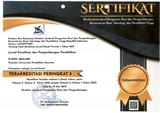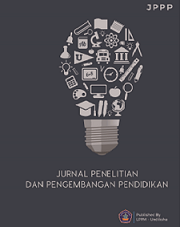Teacher Professional Development in Indonesia’s Remote Areas with Driven Educational Philanthropic Institutions
DOI:
https://doi.org/10.23887/jppp.v6i3.55742Keywords:
Teacher professional development, Remote areas, Philanthropy, Facilitation programsAbstract
The three main problems of education in Indonesia’s remote areas: policy, human resources, and funding, are still deeply rooted today. The government’s unequal attention to remote schools makes the quality of education worse. To overcome this and as an effort to support government programs, the Tanoto Foundation has been driven by funding remote schools and training for teachers to develop their professionalism. This study aims to analyze how the Tanoto Foundation supports the professional development of teachers in remote areas and how the facilitation program activities are carried out. This research uses a qualitative case study approach by extracting data using philanthropic program documents and interviews with teachers and facilitators in three provinces. The results that the driven by Tanoto Foundation are focused on funding support in the provision of facilities and infrastructure, as well as the ‘Service-Learning’ training facilitation program for teachers. Forms of facilitation activities such as Pelita Guru Mandiri and the PINTAR program have trained many teachers and produced various innovative and fun learning methods, as well as learning products that were exhibited at the Education Expo. The results contribute philanthropic institutions are driven not only by funding but also by the development of teacher professionalism, which is still low and does not receive attention.
References
Angelico, T. (2021). Proposed strategy for incorporating critical thinking in teacher education to support teacher professionalism. Journal of Higher Education Theory and Practice, 21(5), 27–41. https://doi.org/10.33423/jhetp.v21i5.4266. DOI: https://doi.org/10.33423/jhetp.v21i5.4266
Asari, S., Fauziyah, N., & Uchtiawati, S. (2018). Improving Teacher Pedagogic Competences in Remote Areas through Lesson Study Activity. International Journal of Education and Literacy Studies, 6(2), 53–62. https://eric.ed.gov/?id=EJ1183001. DOI: https://doi.org/10.7575/aiac.ijels.v.6n.2p.53
Blank, R. K., & de las Alas, N. (2009). The Effects of Teacher Professional Development on Gains in Student Achievement: How Meta Analysis Provides Scientific Evidence Useful to Education Leaders. In Council of Chief State School Officers. https://eric.ed.gov/?id=ED544700.
Cheng, M. M. H., Cheng, A. Y. N., & Tang, S. Y. F. (2010). Closing the gap between the theory and practice of teaching: Implications for teacher education programmes in Hong Kong. Journal of Education for Teaching, 36(1), 91–104. https://doi.org/10.1080/02607470903462222. DOI: https://doi.org/10.1080/02607470903462222
Curran, C. M., & Hawbaker, B. W. (2020). Cultivating Communities of Inclusive Practice: Professional Development for Educators–Research and Practice. In Accessibility and Diversity in Education: Breakthroughs in Research and Practice, 906–939. https://www.igi-global.com/chapter/cultivating-communities-of-inclusive-practice/241018. DOI: https://doi.org/10.4018/978-1-7998-1213-5.ch045
Díez, F., Villa, A., López, A. L., & Iraurgi, I. (2020). Impact of quality management systems in the performance of educational centers: educational policies and management processes. Heliyon, 6(4), e03824. https://doi.org/https://doi.org/10.1016/j.heliyon.2020.e03824 DOI: https://doi.org/10.1016/j.heliyon.2020.e03824
Estriyanto, Y., Kersten, S., Pardjono, P., & Sofyan, H. (2017). The missing productive vocational high school teacher competency standard in the Indonesian education system. Journal of Technical Education and Training, 9(1), 6–14. https://doi.org/Retrieved from https://publisher.uthm.edu.my/ojs/index.php/JTET/article/view/1499.
Faisal, & Martin, S. N. (2019). Science education in Indonesia: Past, present, and future. Asia-Pacific Science Education, 5(1), 1–29. https://doi.org/10.1186/s41029-019-0032-0. DOI: https://doi.org/10.1186/s41029-019-0032-0
Foundation, T. (2018). Annual Report 2018: Quality Education Accelerates Equal Opportunities. Tanoto Foundation.
Gali, Y., & Schechter, C. (2020). NGO involvement in education policy: Principals’ voices. International Journal of Educational Management, 34(10), 1509–1525. https://doi.org/10.1108/IJEM-02-2020-0115. DOI: https://doi.org/10.1108/IJEM-02-2020-0115
Gaus, N. (2019). Is State Control in Higher Education Governance Always Bad?: New Public Management and the History of Indonesian Higher Education Reform Policy. Asian Politics & Policy, 11(2), 294–313. https://doi.org/10.1111/aspp.12462. DOI: https://doi.org/10.1111/aspp.12462
Haley, G. T., Haley, U. C. V., & Tan, C. (2009). New Asian Emperors: The Business Strategies of the Overseas Chinese. John Wiley & Sons.
Hollweck, T. (2021). Contextual coaching: Levering and leading school improvement through collaborative professionalism. International Journal of Mentoring and Coaching in Education, 10(4), 399–417. https://doi.org/10.1108/IJMCE-01-2021-0019. DOI: https://doi.org/10.1108/IJMCE-01-2021-0019
Jeon, Y. (2005). Integration and utilization of public education resources in remote and homogenous areas: A case study of the Upper Peninsula of Michigan. Contemporary Economic Policy, 23(4), 601–614. https://doi.org/10.1093/cep/byi044. DOI: https://doi.org/10.1093/cep/byi044
Karuniawati, E., Rahayu, S., & Ladamay, I. (2021). Education, Working Group Activities and Pedagogic Competencies Their Effect on Teacher Professionalism. In 2nd Annual Conference on Social Science and Humanities (ANCOSH 2020), 75–78. https://doi.org/10.2991/assehr.k.21. DOI: https://doi.org/10.2991/assehr.k.210413.018
Kosec, K., & Wantchekon, L. (2020). Can information improve rural governance and service delivery? World Development, 125, 104376. https://doi.org/10.1016/j.worlddev.2018.07.017. DOI: https://doi.org/10.1016/j.worlddev.2018.07.017
Kou, S. (2020). Application of education informatization promoting educational equity in remote areas of china. International Journal of Information and Education Technology, 10(8), 608–613. https://doi.org/10.18178/ijiet.2020.10.8.1432. DOI: https://doi.org/10.18178/ijiet.2020.10.8.1432
Kusumawardhani, P. N. (2017). Does teacher certification program lead to better quality teachers? Evidence from Indonesia. Education Economics, 25(6), 590–618. https://doi.org/10.1080/09645292.2017.1329405. DOI: https://doi.org/10.1080/09645292.2017.1329405
Li, J., Shi, Z., & Xue, E. (2020). The problems, needs and strategies of rural teacher development at deep poverty areas in China: Rural schooling stakeholder perspectives. International Journal of Educational Research, 99, 101496. https://doi.org/10.1016/j.ijer.2019.101496. DOI: https://doi.org/10.1016/j.ijer.2019.101496
Meissel, K., Parr, J. M., & Timperley, H. S. (2016). Can professional development of teachers reduce disparity in student achievement? Teaching and Teacher Education, 58, 163–173. https://doi.org/10.1016/j.tate.2016.05.013. DOI: https://doi.org/10.1016/j.tate.2016.05.013
Rayuwati, R. (2020). How educational technology innovates distance learning during pandemic crisis in remote areas in Indonesia? International Research Journal of Management, IT and Social Sciences, 7(6), 161–166. https://doi.org/10.21744/irjmis.v7n6.1032. DOI: https://doi.org/10.21744/irjmis.v7n6.1032
Resch, K., & Schrittesser, I. (2018). Using the Service-Learning approach to bridge the gap between theory and practice in teacher education. International Journal of Inclusive Education, 0(0), 1–15. https://doi.org/10.1080/13603116.2021.1882053 DOI: https://doi.org/10.1080/13603116.2021.1882053
Roberts, K. L., & Rochester, S. E. (2021). Learning through everyday activities: Improving preschool language and literacy outcomes via family workshops. In Journal of Early Childhood Literacy. https://doi.org/10.1177/14687984211005081. DOI: https://doi.org/10.1177/14687984211005081
Rowe, E. E., & Skourdoumbis, A. (2019). Calling for ‘urgent national action to improve the quality of initial teacher education’: The reification of evidence and accountability in reform agendas. Journal of Education Policy, 34(1), 44–60. https://doi.org/10.1080/02680939.2017.1410577. DOI: https://doi.org/10.1080/02680939.2017.1410577
Sangpikul, A. (2020). Learning about the real-world in MICE education: The case of exhibition learning from Thailand. Journal of Convention & Event Tourism, 21(3), 225–253. https://doi.org/10.1080/15470148.2020.1768190. DOI: https://doi.org/10.1080/15470148.2020.1768190
Sensenig, V. J. (2012). Education Strategy in the Developing World: Revising the World Bank’s Education Policy. Emerald Group Publishing Limited, 16, 395–421. https://doi.org/10.1108/S1479-3679(2012)0000016021. DOI: https://doi.org/10.1108/S1479-3679(2012)0000016021
Sobandi, a., Suryadi, E., Ramdhany, M. A., & Rasto, R. (2021). Knowledge Management Process, Knowledge Sharing, and Teacher Literacy Skills At Vocational High Schools. Cakrawala Pendidikan, 40(3), 738–749. https://doi.org/10.21831/cp.v40i3.42489. DOI: https://doi.org/10.21831/cp.v40i3.42489
Soenarto, S. (2020). Vocational and senior high school professional teachers in industry 4.0. Cakrawala Pendidikan, 39(3), 655–665. https://doi.org/10.21831/cp.v39i3.32926. DOI: https://doi.org/10.21831/cp.v39i3.32926
Sutton, S. S. (2021). Pedagogical mentoring in Chilean schools: An innovative approach to teachers’ professional learning. International Journal of Mentoring and Coaching in Education, 11(1), 69–88. https://doi.org/10.1108/IJMCE-01-2021-0028. DOI: https://doi.org/10.1108/IJMCE-01-2021-0028
Suyadi, Nuryana, Z., Sutrisno, & Baidi. (2022). Academic reform and sustainability of Islamic higher education in Indonesia. International Journal of Educational Development, 89, 102534. https://doi.org/10.1016/j.ijedudev.2021.102534. DOI: https://doi.org/10.1016/j.ijedudev.2021.102534
Wardoyo, C., Herdiani, A., & Sulikah. (2017). Teacher Professionalism: Analysis of Professionalism Phases. International Education Studies, 10(4), 90–100. https://eric.ed.gov/?id=EJ1138573. DOI: https://doi.org/10.5539/ies.v10n4p90
Wellbrock, W., Roep, D., Mahon, M., Kairyte, E., Nienaber, B., Domínguez García, M. D., Kriszan, M., & Farrell, M. (2013). Arranging public support to unfold collaborative modes of governance in rural areas. Journal of Rural Studies, 32, 420–429. https://doi.org/10.1016/j.jrurstud.2013.10.002. DOI: https://doi.org/10.1016/j.jrurstud.2013.10.002
Downloads
Published
How to Cite
Issue
Section
License
Copyright (c) 2022 Moh. Sutomo

This work is licensed under a Creative Commons Attribution-ShareAlike 4.0 International License.
Authors who publish with the Jurnal Penelitian dan Pengembangan Pendidikan agree to the following terms:
- Authors retain copyright and grant the journal the right of first publication with the work simultaneously licensed under a Creative Commons Attribution License (CC BY-SA 4.0) that allows others to share the work with an acknowledgment of the work's authorship and initial publication in this journal.
- Authors are able to enter into separate, additional contractual arrangements for the non-exclusive distribution of the journal's published version of the work (e.g., post it to an institutional repository or publish it in a book), with an acknowledgment of its initial publication in this journal.
- Authors are permitted and encouraged to post their work online (e.g., in institutional repositories or on their website) prior to and during the submission process, as it can lead to productive exchanges, as well as earlier and greater citation of published work. (See The Effect of Open Access)







